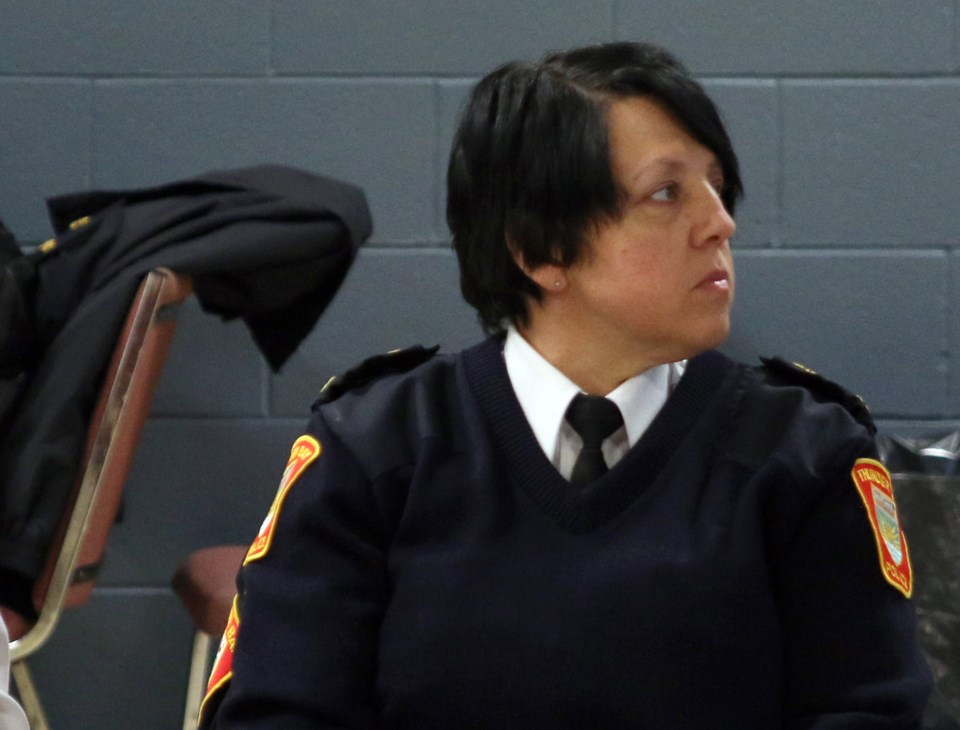THUNDER BAY - A program that assists police officers when attending calls for service involving mental health issues will continue for another year, but funding is still being sought to make it a permanent fixture in city policing.
During the Thunder Bay Police Services meeting on Tuesday, police chief, Sylvie Hauth, informed the board that the Joint Mobile Crisis Response Team pilot project has received an additional $300,000 to continue through 2019.
The funding comes from the Canadian Mental Health Association and is the same amount as when the pilot began in June 2018. The funding for this year, which was secured through the North West Local Health Integration Network was supposed to end on March 31, but the new funding will now pick up on Apr. 1.
“The status is still as a pilot project,” Hauth said. “We are trying to secure permanent funding.”
The purpose of the JMCRT is to have trained crisis response workers attend calls with uniform patrols officers involving mental health.
In 2017, Thunder Bay Police Service responded to more than 1,500 calls for service involving a mental health issue, and these numbers have been climbing for the last five years.
“We are a catch all,” Hauth said. “Through 911, someone in crisis has to deal with a police officer and we know it’s not always the best avenue. We are not trained psychiatrists and we want to ensure that the services we offered are client centered and I think the team offers that.”
In a four month period, the JMCRT was used in 272 calls out of 538 calls involving the Mental Health Act. Police were diverted from the hospital 107 and 125 by other means.
“We’ve been diverted quite a few times,” Hauth said. “We only have so many avenues we can do. We usually end up having to apprehend. I think one of the biggest numbers is we can divert from the hospital through the team. So for us it’s huge and we don’t have officers sitting at the hospital for sometimes a few hours.”
In the same four month period, officers attended the emergency department 307 times and only 78 involved officers spending more than 100 minutes at the hospital.
Moving forward, Hauth said the police service, the Police Services Board, and the municipality will need to work at securing permanent funding for the JMCRT because it is a service that is not only impacting the service, but the people in the community.
“You can appreciate that this has existed in a number of municipalities across Ontario,” Hauth said. “We started looking at this well over three years ago realizing that our calls for service as an agency for Mental Health Act calls is increasing every year and have continued to do so.”
“I think it’s important for us as a municipality through the board and city council to make sure people are aware that we are at a pilot project level, showcasing the results in the last eight months, and how it has impacted not only our resources as a police agency, but really impacted people who live in the community and access those services.”
